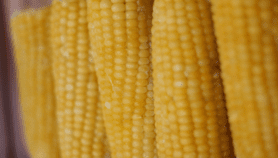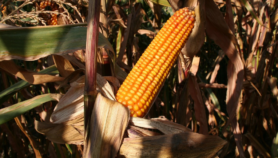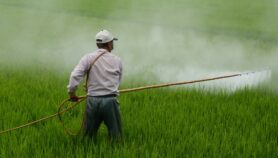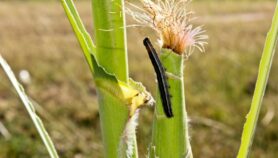05/04/22
Banana ‘paper’ helps fight destructive potato pest
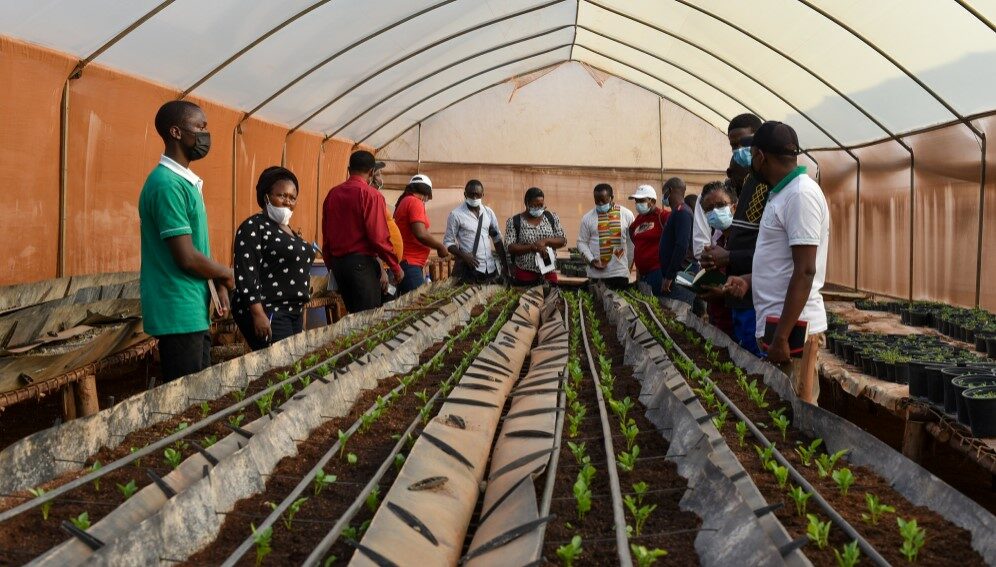
By: Eldon Opiyo
Send to a friend
The details you provide on this page will not be used to send unsolicited email, and will not be sold to a 3rd party. See privacy policy.
[NAIROBI] Wrapping potato seeds in a paper developed from recyclable banana plant waste reduces infestation by a devastating potato pest, increasing potato yield five-fold, a study has found.
Potato cyst nematodes (PCNs) cause potato production losses of more than 60 per cent in Kenya, with potato farmers in other East African countries such as Rwanda and Uganda also plagued by the destructive pests.
The technology known as “wrap and plant” involves enclosing potato seed before planting, in a thick absorbent paper made from the fibre of banana plants, creating a protective barrier for the plants against damage by PCN. It was trialed in Kenya during the 2016 and 2017 farming seasons, and found to be safe for farmers and the environment, according to the study published in Nature Sustainability.
“The study was a proof-of-concept and the next step is to bring on board paper manufacturers and convince farmers to buy the paper for use in planting potatoes,” says Baldwyn Torto, a principal scientist at the International Centre of Insect Physiology and Ecology (icipe) and a co-author of the study.
“The next step is to bring on board paper manufacturers and convincing farmers to buy the paper for use in planting potatoes.”
Baldwyn Torto, principal scientist, icipe
The technology, he says, has the potential for use in protecting other tuber crops such as yams and sweet potatoes from soil pests.
Potato cyst nematode are microscopic worms that damage potatoes, causing leaf wilting and discolouration, root cysts, reduced roots, dwarfing of the plant and fewer crops. They live on the roots of plants of the Solanaceae family such as potatoes and tomatoes.
Torto says that the organic technology may be the answer to successful potato production and combatting highly destructive potato pests.

He calls the study a breakthrough because it provides evidence that the chemical communication between the potato root and the cyst nematode can be blocked using recyclable banana paper.
The banana paper absorbs about 90 per cent of the chemicals that stimulate hatching in PCN and the remaining secretions that goes through the paper is not potent enough to allow the eggs that hatch to find potato roots, resulting in the worms dying.
The study also proved that the technology dramatically reduces the need for pesticide use, says the researchers.
According to Torto, potato is East Africa’s second most important staple crop and the “wrap and plant” technology is a promising boost for food and nutrition security as well as household incomes.
Elly Ouma Atieno, an associate scientist at the International Potato Center, says: “The findings are very encouraging from the research point of view. In terms of the applicability, I think more still needs to be done to adapt it to the local farmer’s conditions.”
Atieno adds that farmers are still struggling with using certified seeds which are sometimes not available or affordable. It will be important to conduct a cost-benefit analysis because the technology comes with additional costs in terms of labour and purchase of the paper, he says.



He explains that potato farming has become an important activity in East Africa in the last 20 years, with production increasing from 1.6 million to 3.4 million metric tonnes. But the increase is largely due to increased planting rather than improved productivity, he adds.
“The findings have shown potential to boost the yields,” he says, adding that the findings are good for farmers, businesses supplying the paper, and local governments.
This piece was produced by SciDev.Net’s Sub-Saharan Africa English desk.








